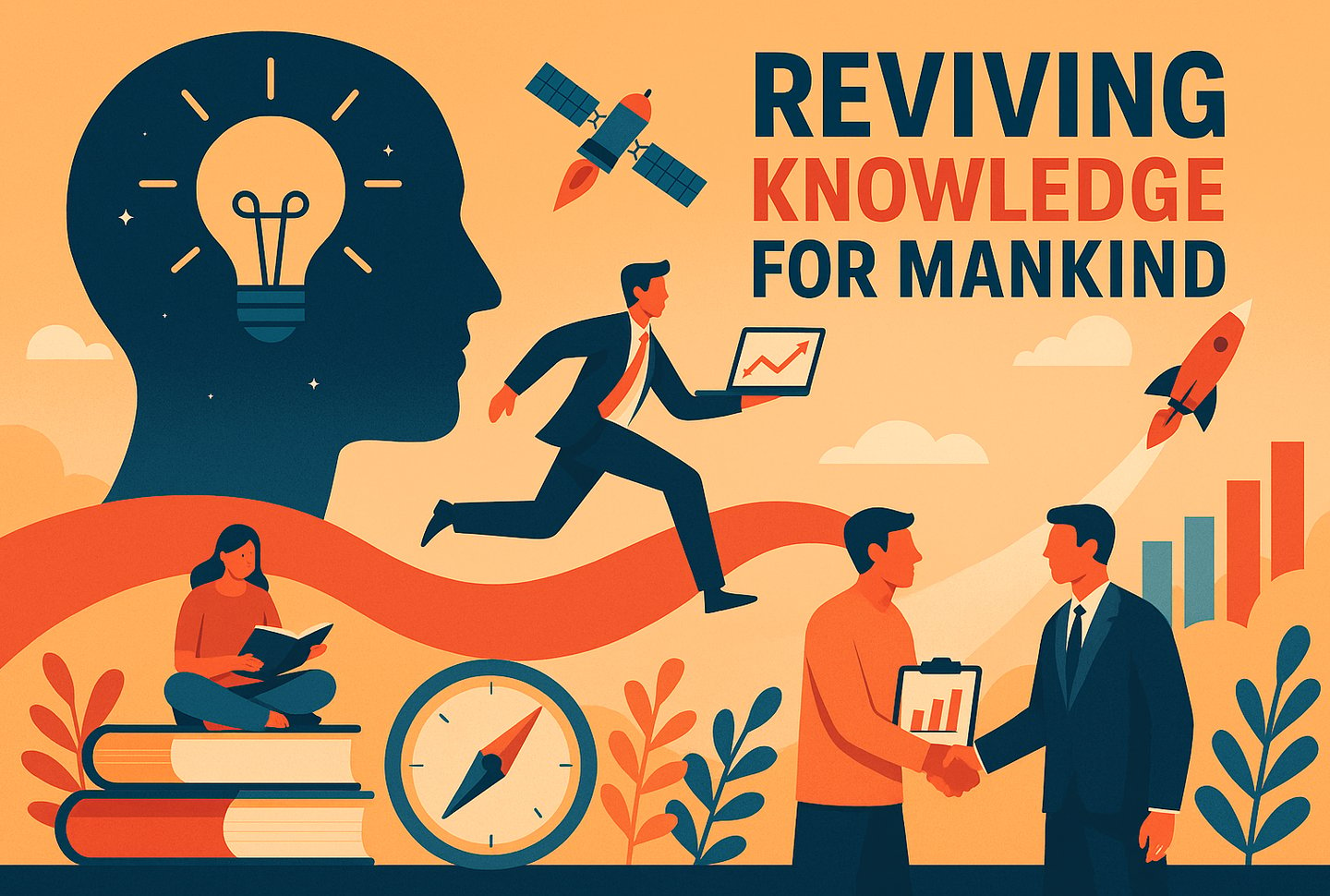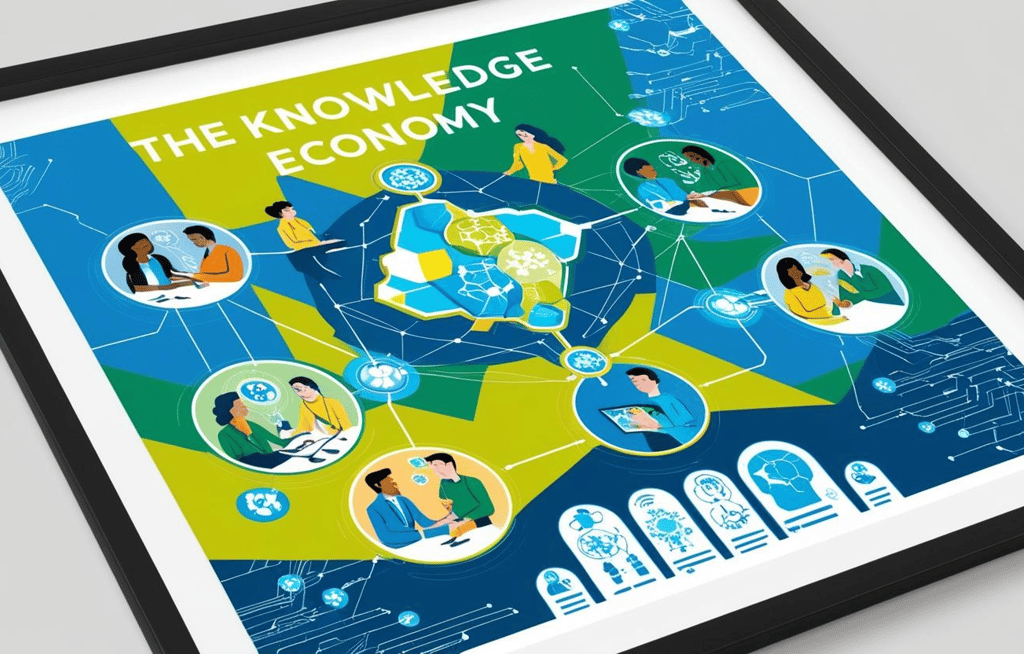Knowledge Economies: Measuring Impact, Empowering Futures
THINKING BEYOND
4/28/20253 min read


When ideas outpace industries, and innovation reshapes identity, measuring the true pulse of a nation demands more than economic charts—it calls for new eyes, new metrics, and new heroes. This is the story of how knowledge must evolve to remain power—and a promise.
Knowledge Economy: A Pulse, Not Just a Product
The knowledge economy is not just a sector; it is the bloodstream of modern civilizations. To capture it in numbers alone is to miss its essence. The life and work of K. Kasturirangan, the architect of India's space renaissance, embody the deeper spirit of a knowledge economy that works for humanity. Under his leadership, India's space capabilities evolved beyond Cold War mimicry into lifelines for farmers, fishermen, students, and emergency responders. The Polar Satellite Launch Vehicle, remote sensing satellites, and cost-effective space missions became tools of democratized empowerment, not geopolitical symbols. Kasturirangan's vision underscores that a real knowledge economy uplifts the marginalized first, while achieving global stature along the way.
GDKP: From Theory to Framework
Recognizing the limitations of GDP in a knowledge-driven age, India’s Ministry of Statistics and Programme Implementation (MoSPI) is developing the Gross Domestic Knowledge Product (GDKP). In February 2025, leading policymakers, statisticians, and economists gathered in Delhi to brainstorm a bold shift: from measuring outputs to mapping flows of ideas, skills, and innovation. Unlike traditional metrics, GDKP aims to trace how knowledge is created, transmitted, and translated into real-world impact. Satellite accounts for tourism, culture, and oceans have laid the groundwork; GDKP now promises a model that treats knowledge as a national asset, on par with infrastructure or natural resources. Properly executed, GDKP could serve as the world’s first economic cartography of intellectual capital.
UAE: The High-Risk Bet on AI-Powered Governance
Meanwhile, the UAE is not waiting for consensus. It is pioneering an audacious model where Artificial Intelligence (AI) doesn't just assist governance — it drives it. The creation of the Regulatory Intelligence Office and the deployment of AI to draft laws represent a radical pivot. Backed by billion-dollar investments like MGX and infrastructure expansions including undersea cables and semiconductor foundries, the UAE is trying to hardwire speed, precision, and predictive governance into its national DNA. Yet this daring raises vital questions: Can AI truly understand human nuance, dissent, and aspiration? Can a knowledge society remain vibrant when algorithms steer its legal backbone? Dubai's experiment is as much a warning as it is a marvel.
As governments race to decode the true value of ideas, a new frontier emerges: can we measure knowledge the way we once measured steel and grain? From India's satellite-fueled empowerment to the UAE's AI-driven statecraft, the contest to define tomorrow's economy has already begun.
From Knowledge to Innovation: The Great Transition
Aneesh Raman of LinkedIn aptly notes: the knowledge economy as we knew it is receding. In its place rises the "innovation economy," where AI handles the rote and the routine, and uniquely human faculties define value. The "5Cs" — creativity, curiosity, courage, compassion, and communication — are no longer soft skills; they are survival skills. Societies that nourish these capacities will lead; those that cling to old credentials and outdated hierarchies will fade. Innovation is no longer gated by capital or geography; it is becoming as accessible as an internet connection and an idea. The challenge for nations is not just to foster innovation hubs, but to make every citizen a potential innovator.
Toward Knowledge Revivalism: A New Social Contract
True knowledge revivalism demands a new kind of hero: not the solitary genius in a lab, but the ecosystem builder, the opportunity multiplier. Kasturirangan championed knowledge for the many; today, we must extend that ethos globally. India's GDKP initiative must capture not only the production of ideas but the spread of opportunity. The UAE's AI-driven model must be tempered with safeguards for justice and participation. In the innovation economy, the winners will be those who democratize possibility, not just digitize bureaucracy. Knowledge must be measured not by outputs alone, but by the futures it liberates.
The truest measure of a knowledge economy is not in its data points, but in the dignity it restores, the dreams it enables, and the resilience it builds across generations.
The Economy Council
PIC: ChatGPT


PIC: Canva
Who We Are:
The Economic Nations champions global unity through economic collaboration, focusing on sustainable growth, reducing inequalities, and enhancing global relationships for mutual prosperity and peace.
______________________________________
Contacts
enquiry@economicnations.org
(xx) 98-11-937-xxx (On verification)
